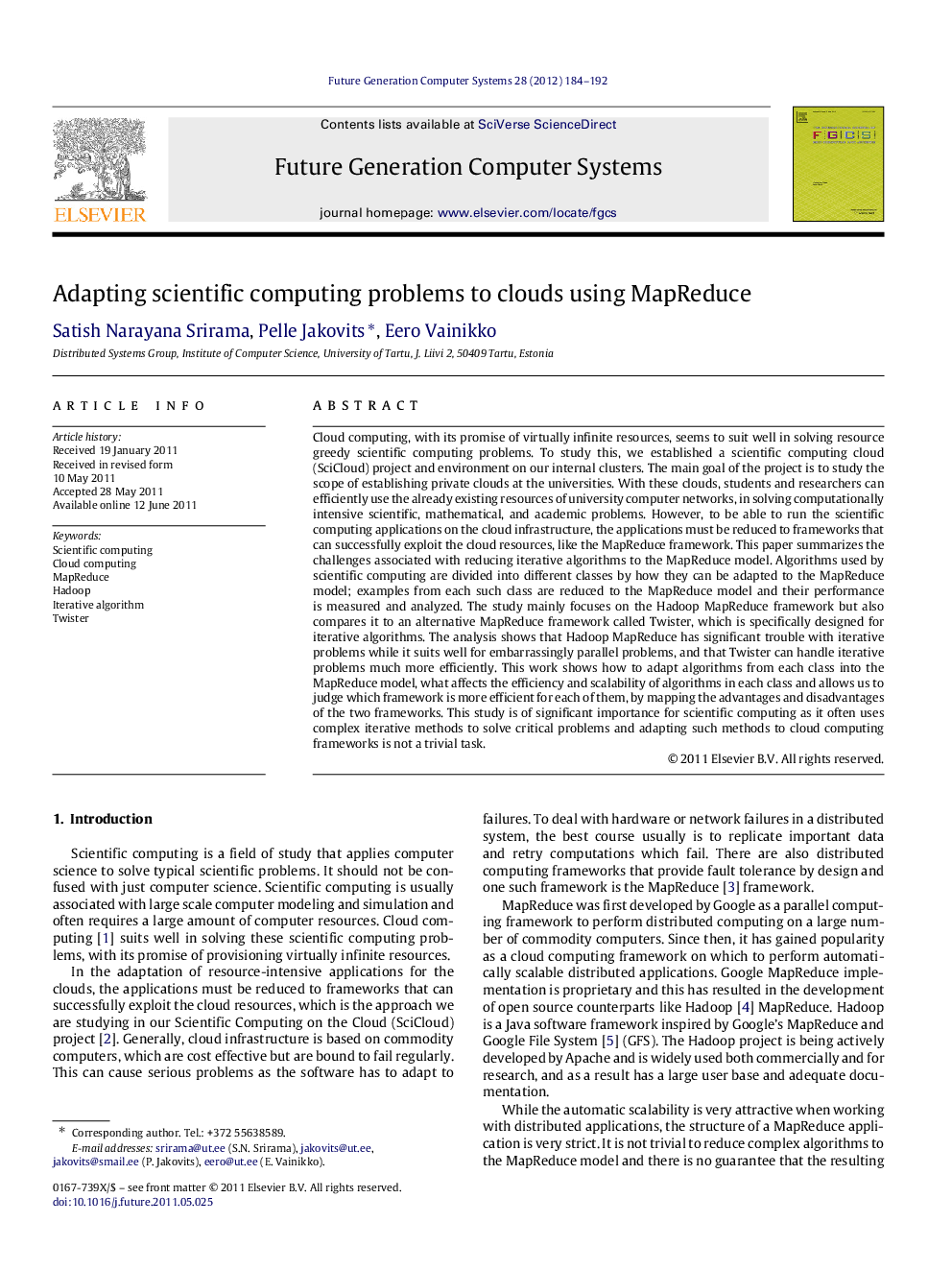| کد مقاله | کد نشریه | سال انتشار | مقاله انگلیسی | نسخه تمام متن |
|---|---|---|---|---|
| 426134 | 686000 | 2012 | 9 صفحه PDF | دانلود رایگان |

Cloud computing, with its promise of virtually infinite resources, seems to suit well in solving resource greedy scientific computing problems. To study this, we established a scientific computing cloud (SciCloud) project and environment on our internal clusters. The main goal of the project is to study the scope of establishing private clouds at the universities. With these clouds, students and researchers can efficiently use the already existing resources of university computer networks, in solving computationally intensive scientific, mathematical, and academic problems. However, to be able to run the scientific computing applications on the cloud infrastructure, the applications must be reduced to frameworks that can successfully exploit the cloud resources, like the MapReduce framework. This paper summarizes the challenges associated with reducing iterative algorithms to the MapReduce model. Algorithms used by scientific computing are divided into different classes by how they can be adapted to the MapReduce model; examples from each such class are reduced to the MapReduce model and their performance is measured and analyzed. The study mainly focuses on the Hadoop MapReduce framework but also compares it to an alternative MapReduce framework called Twister, which is specifically designed for iterative algorithms. The analysis shows that Hadoop MapReduce has significant trouble with iterative problems while it suits well for embarrassingly parallel problems, and that Twister can handle iterative problems much more efficiently. This work shows how to adapt algorithms from each class into the MapReduce model, what affects the efficiency and scalability of algorithms in each class and allows us to judge which framework is more efficient for each of them, by mapping the advantages and disadvantages of the two frameworks. This study is of significant importance for scientific computing as it often uses complex iterative methods to solve critical problems and adapting such methods to cloud computing frameworks is not a trivial task.
► MapReduce model is considered for solving scientific computing problems.
► Scientific computing algorithms are divided into different classes.
► Algorithms from each class are adapted to the Hadoop MapReduce framework.
► Twister, an alternative MR framework is considered for more complex algorithms.
► Detailed analysis of the results is provided for each class of algorithms.
Journal: Future Generation Computer Systems - Volume 28, Issue 1, January 2012, Pages 184–192